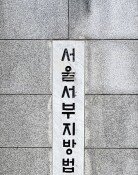Gov¡¯t control of banking double-faced
Gov¡¯t control of banking double-faced
Posted January. 09, 2001 14:51,
New government-controlled financing practices disregarding the market principle are prevailing in the country.
In the past, the government intervened in the market through window guidance for the purpose of boosting the economy and injecting fresh air into the financial market. However, the means of the recent government-controlled financing practices have become more shrewd and highly developed, and the type and degree of intervention have become more severe, analysts point out.
Noting that the government, which has insisted on the principle of market theory and the abolition of the government-controlled financing practices, is disregarding the principle on the pretext of dealing with the current crisis, analysts warned.
¡°Such actions could collapse the financial system eventually and cause another crisis,¡± an expert warned.
Actual conditions of dexterous government-controlled financing practices:
¡°In the Fifth Republic, they left some evidence of its actions,¡± a commercial bank official said of the realities of the recent government-controlled financing practices. ¡°But they recently intervened in the market very dexterously, leaving no evidence.¡±
Analysts commonly point out that the key reason behind the government-controlled financing stems from the fact that the government holds the right of personnel management of bank presidents. At present, the government designates presidents of all commercial banks, except Shinhan and Hana banks.
Is there any way for banks not to read the face of the government under the present system, under which the government selects bank heads, analysts ask? The recent refusal by Korea First Bank -- in which a foreigner serves as its CEO -- to follow the state-run Korea Development Bank¡¯s acceptance of corporate bonds was possible because Korea First is free from the influence of the government.
The government also used its powerful influence on the merger of Kookmin Bank and Housing & Commercial Bank (H&CB). Although the government said that it is not in a position to intervene in a merger of individual banks externally, it announced the merger through the press prematurely, showing a double face.
¡°The fact itself that the government already knew the contents of the merger of the two banks, in which the government is not the biggest shareholder, were propelling in the greatest secrecy reflects the government¡¯s behind-the-scene intervention,¡± an official at Kookmin Bank said.
After all, Kookmin and H&CB enforced their merger without the verification of concrete synergy effects under the government¡¯s theory that bigger banks are better, and resulted in the strikes by bank union workers, inflicting great damage on the public.
Besides, the government unilaterally forced banks to share responsibility while creating two phases of bond stabilization funds amounting to 10 trillion won each last year, citing the cooperation of the market. Of course, the external form was ¡°cooperation,¡± but no financial institutions dared refuse the government¡¯s cooperation request under the present situation that the government plays three roles -- the largest shareholder of financial institutions, the financial supervisor, and the planner of financial policies -- simultaneously.
The government also has been criticized for summoning bank officials around a settlement day every year and unilaterally deciding the ratios of loan loss reserves on their loans to specific ailing companies, limiting the self-regulation function of the market and customers¡¯ right to choice.
In addition, the government granted tax favors to the financial products sold by investment-trust companies in order to withdraw public funds it poured into Korea Investment Trust and Daehan Investment Trust, but gave no benefits to the mutual funds operated by asset management companies, bringing about the controversy of the ¡°reversed discrimination,¡± disregarding market principles.
How long will the government-controlled financing practices continue?:
Experts point out that the government is showing impatience in an attempt to complete the reforms in the four major sectors before the deadline it set itself. A good example is that government officials revealed the merger case of Kookmin and H&CB in advance in order to acquire visible results, triggering the strong protest by labor unions and making the case more difficult.
Commenting that an expedient disregard of a principle prompts another expedient, making those who faithfully follow the rules into fools, a market analysts said, ¡°The reality is important of course, but how long will the government produce policies disregarding a principle?¡±
Lee Hoon dreamland@donga.com







